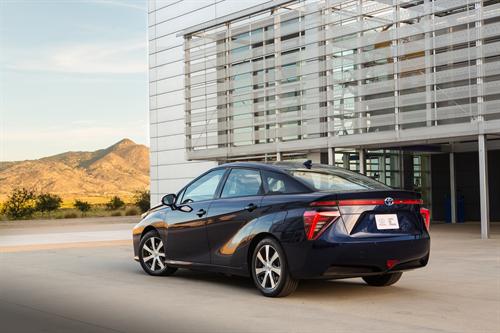
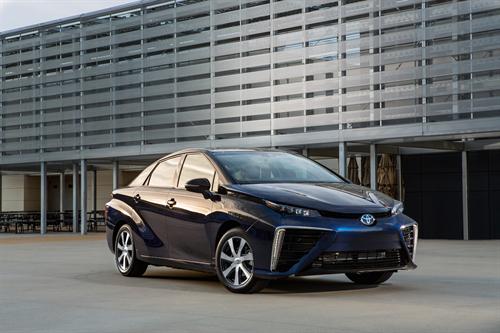 Mirai, Toyota’s first hydrogen-powered production car, has amassed an exceptional 1,500 orders in its first month on sale in Japan. Due for introduction in the UK later this year, the ground-breaking saloon has far exceeded expectations: Toyota’s initial plan was to sell about 400 units by the end of this year.
Mirai, Toyota’s first hydrogen-powered production car, has amassed an exceptional 1,500 orders in its first month on sale in Japan. Due for introduction in the UK later this year, the ground-breaking saloon has far exceeded expectations: Toyota’s initial plan was to sell about 400 units by the end of this year.
Due to the large volume of orders received, Toyota expects some customers will experience longer waits for delivery than originally expected. The orders taken so far divide roughly 60:40 between government/fleet customers and private individuals.
These early adopters of Toyota’s hydrogen fuel cell technology will be the first to experience a new chapter in zero-emissions driving. Mirai’s motor is powered by electricity generated through a chemical reaction between air-borne oxygen and hydrogen in an on-board fuel cell.
The car combines excellent environmental performance – the only tailpipe emission is water – with a fun-to-drive character. Its market launch has the potential to further accelerate energy diversification and help build a future society in which hydrogen is a core energy source.
To help encourage the development of hydrogen-fuelled vehicles, Toyota recently made thousands of its global hydrogen fuel cell patents available to others, free of any royalties.
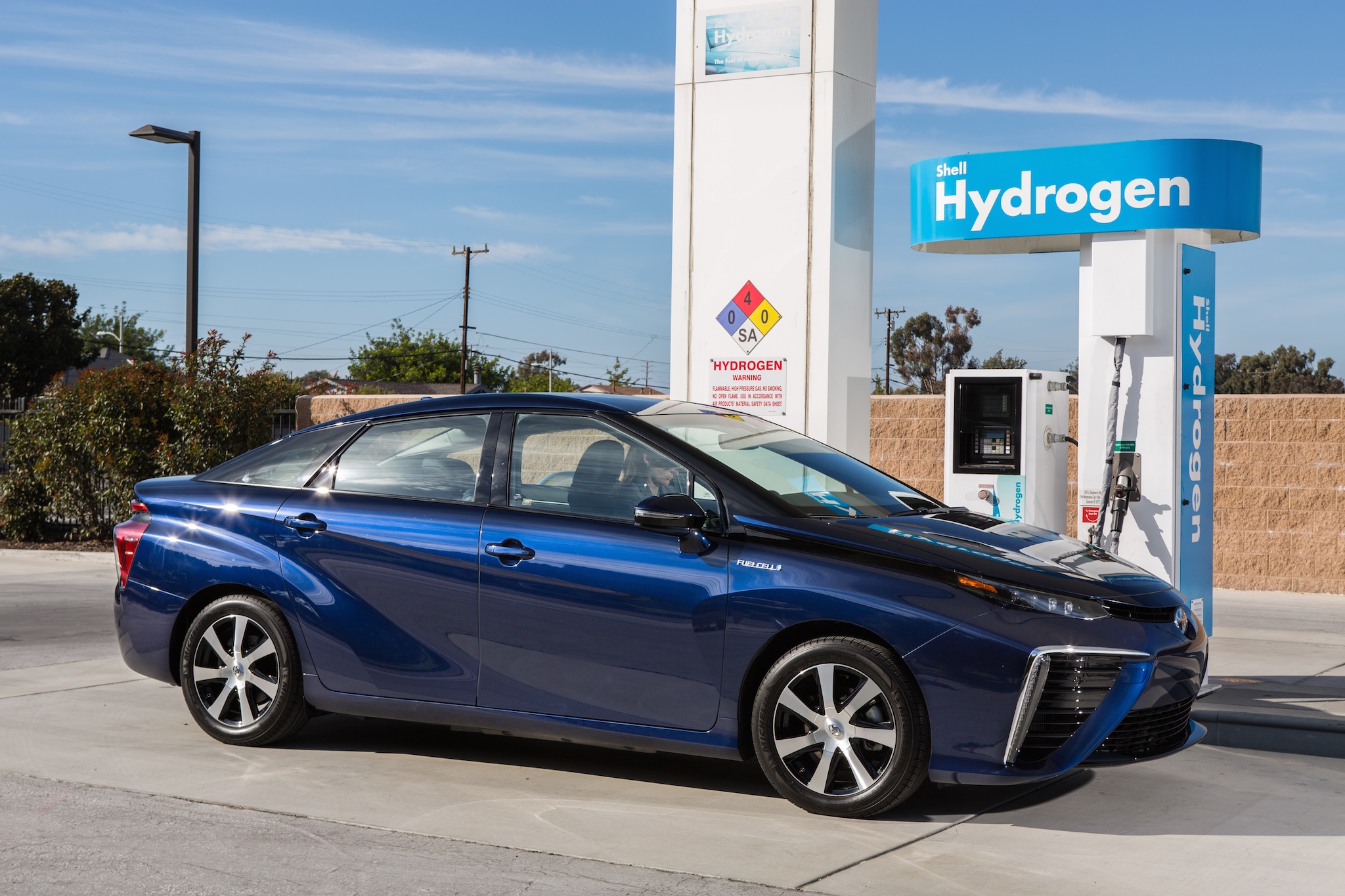
TOYOTA OPENS THE DOOR AND INVITES THE INDUSTRY TO THE HYDROGEN FUTURE
- More than 5,600 fuel cell and related patents available for royalty free use
- Patents include industry leading fuel cell technology used in new Toyota Mirai
Toyota is opening the door to the hydrogen future, making available thousands of hydrogen fuel cell patents royalty free. Announced today at the 2015 Consumer Electronics Show, this Toyota initiative will spur development and introduction of innovative fuel cell technologies around the world.
Toyota will invite royalty-free use of approximately 5,680 fuel cell related patents held globally, including critical technologies developed for the new Toyota Mirai. The list includes approximately 1,970 patents related to fuel cell stacks, 290 associated with high-pressure hydrogen tanks, 3,350 related to fuel cell system software control and 70 patents related to hydrogen production and supply.
“At Toyota, we believe that when good ideas are shared, great things can happen,” said Bob Carter, Senior Vice President of Automotive Operations at Toyota Motor Sales, USA Inc. “The first generation hydrogen fuel cell vehicles, launched between 2015 and 2020, will be critical, requiring a concerted effort and unconventional collaboration between automakers, government regulators, academia and energy providers. By eliminating traditional corporate boundaries, we can speed the development of new technologies and move into the future of mobility more quickly, effectively and economically.”
Toyota has a long history of opening its intellectual properties through collaboration, and was instrumental in facilitating the widespread adoption of hybrid vehicles by licensing related patents. Today’s announcement represents the first time that Toyota has made its patents available free of charge and reflects the company’s aggressive support for developing a hydrogen-based society.
This Toyota initiative builds on previous commitments, including substantial financial support for the development of a hydrogen fuelling infrastructure in California and the north eastern United States. In May 2014, Toyota announced a $7.3 million loan to FirstElement Fuels to support the operations and maintenance of 19 hydrogen fuelling stations across California. In November 2014, Toyota announced a collaboration with Air Liquide to develop and supply a phased network of 12 state-of-the-art hydrogen stations targeted for New York, New Jersey, Massachusetts, Connecticut and Rhode Island.
The hydrogen fuel cell patents will be made available to automakers who will produce and sell fuel cell vehicles, as well as to fuel cell parts suppliers and energy companies who establish and operate fuelling stations, through the initial market introduction period, anticipated to last until 2020. Companies working to develop and introduce fuel cell buses and industrial equipment, such as forklifts, are also covered. Requests from parts suppliers and companies looking to adapt fuel cell technology outside of the transportation sector will be evaluated on a case by case basis.
Today’s announcement covers only fuel cell-related patents wholly owned by Toyota. Patents related to fuel cell vehicles will be available for royalty-free licenses until the end of 2020. Patents for hydrogen production and supply will remain open for an unlimited duration. As part of licensing agreements, Toyota will request, but will not require, that other companies share their fuel cell-related patents with Toyota for similar royalty-free use.
Additional details about Toyota’s fuel cell-related patents, including licensing terms and the application process, will be announced in the weeks ahead.
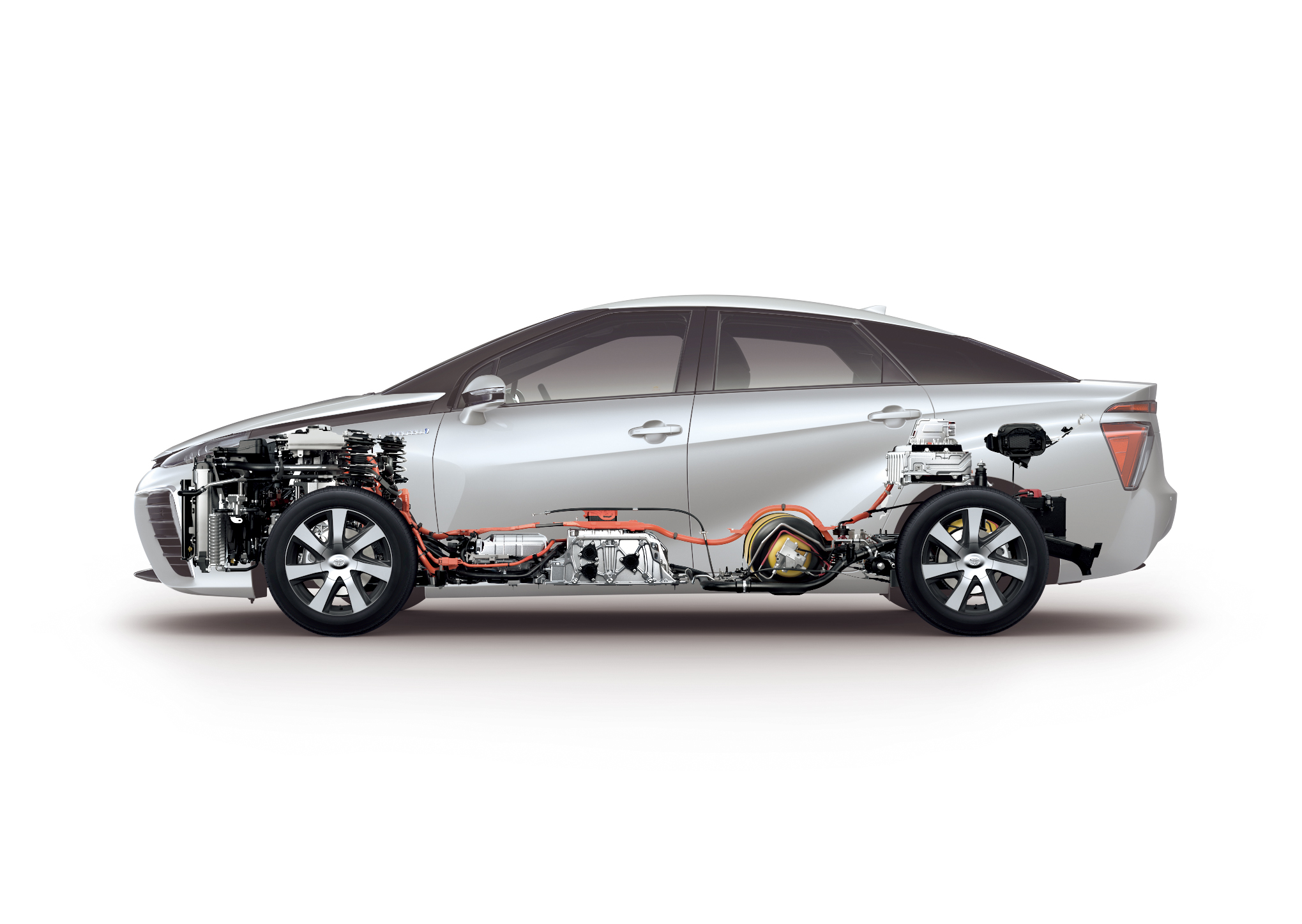
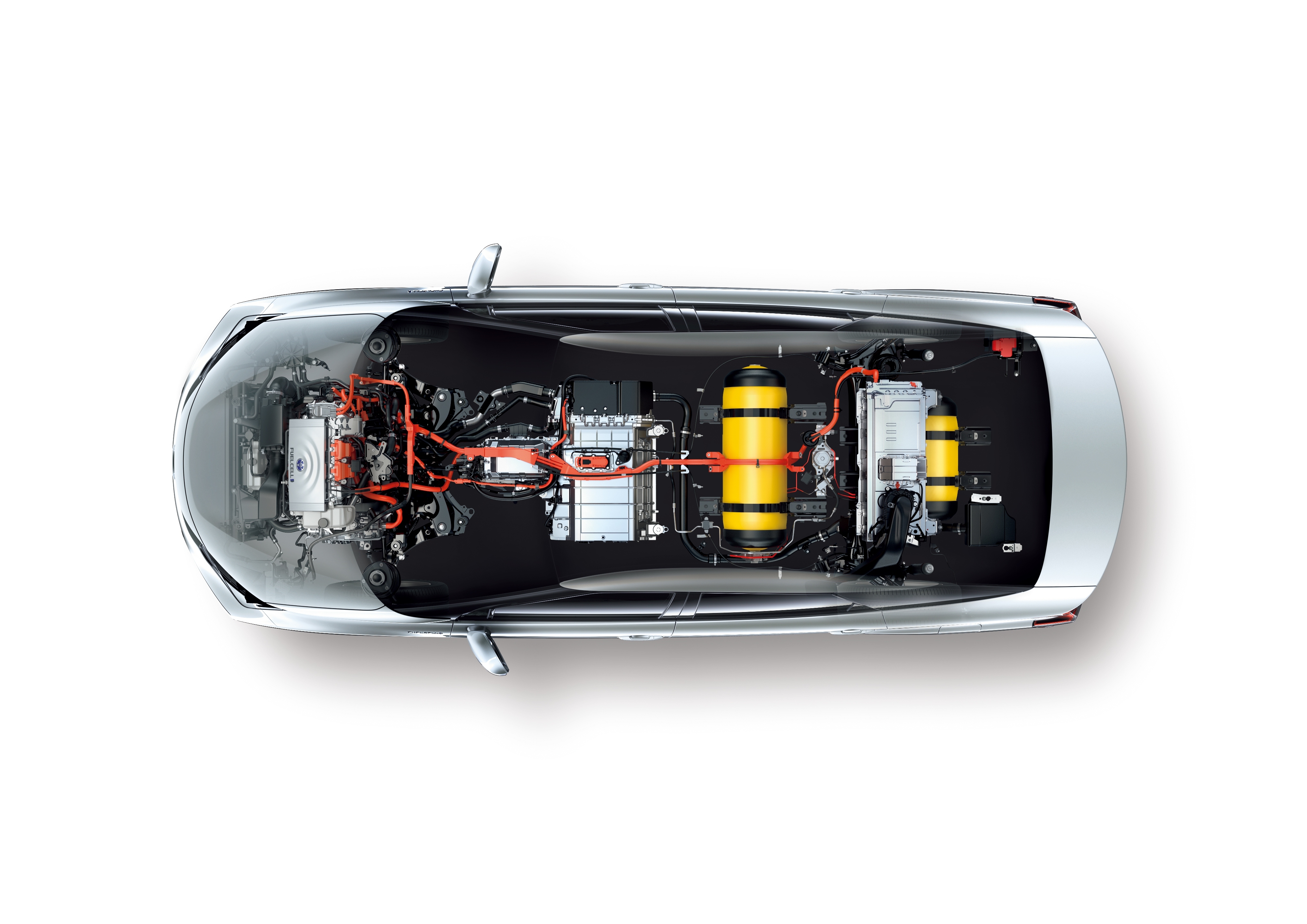
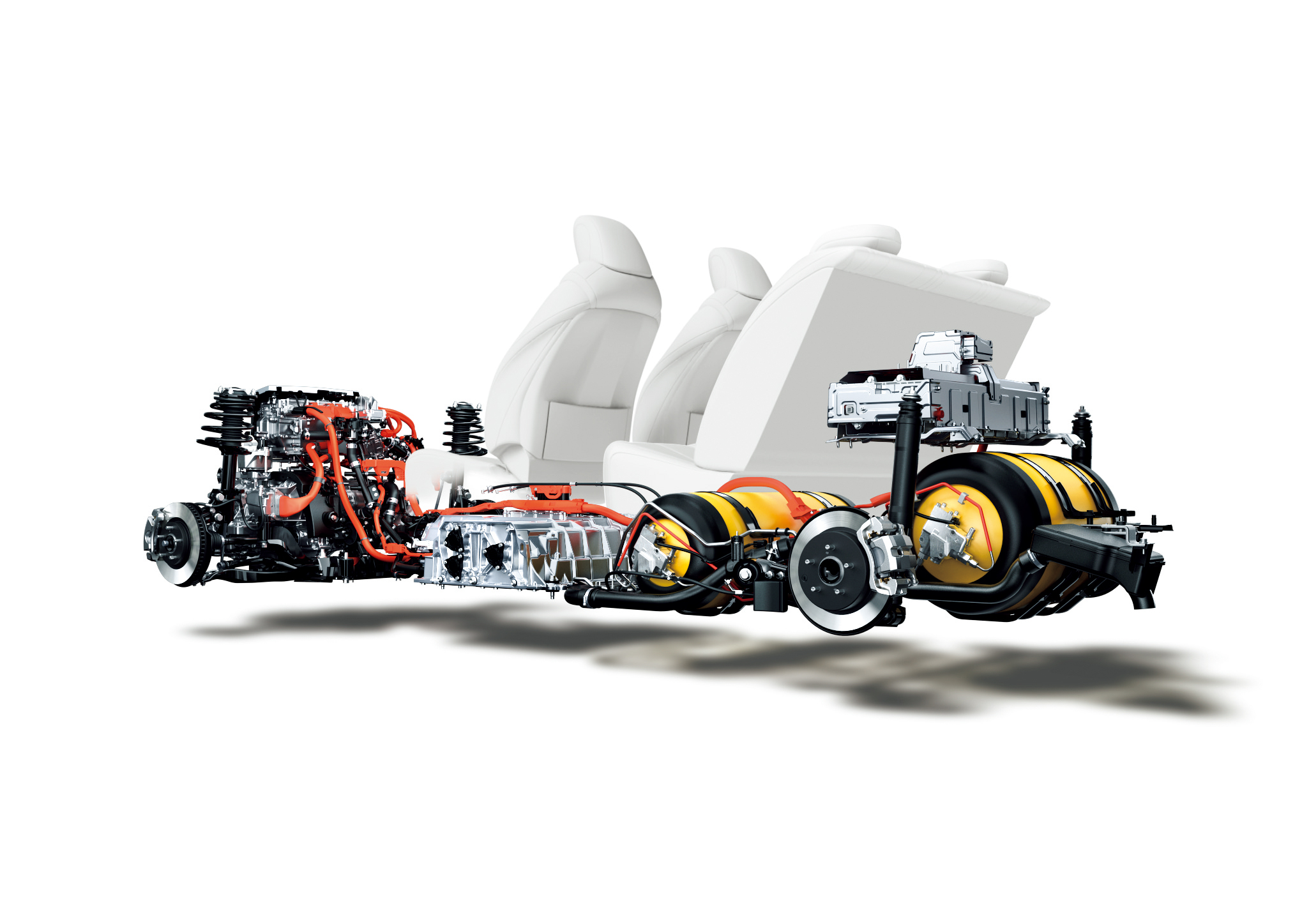

You must be logged in to post a comment.